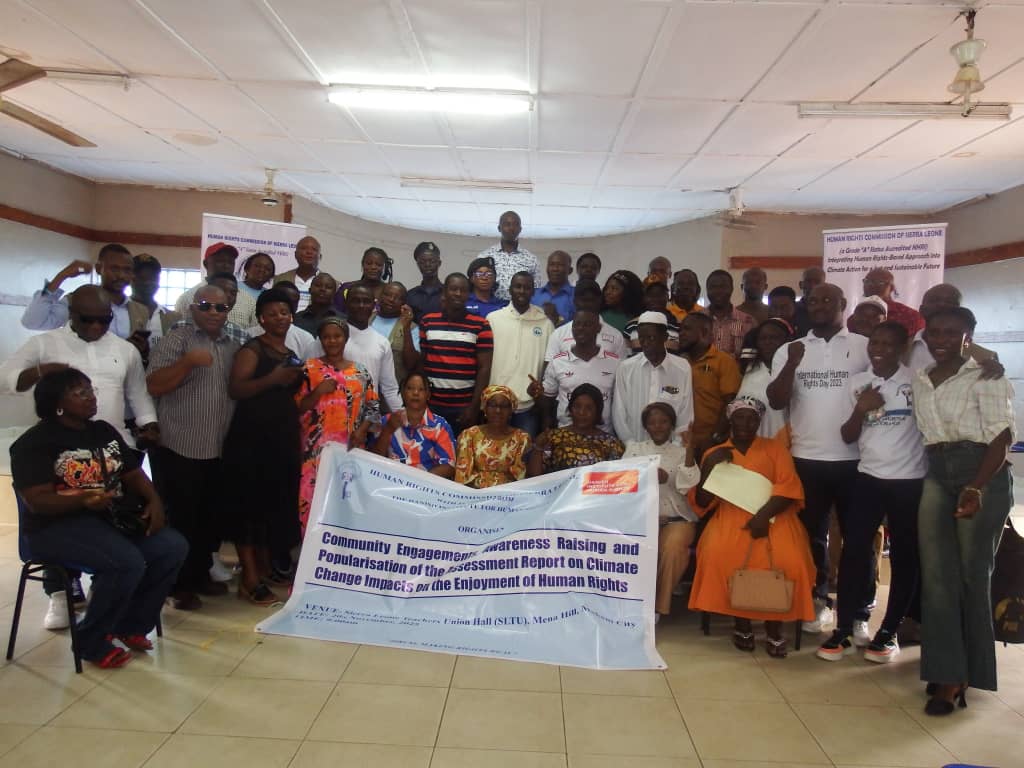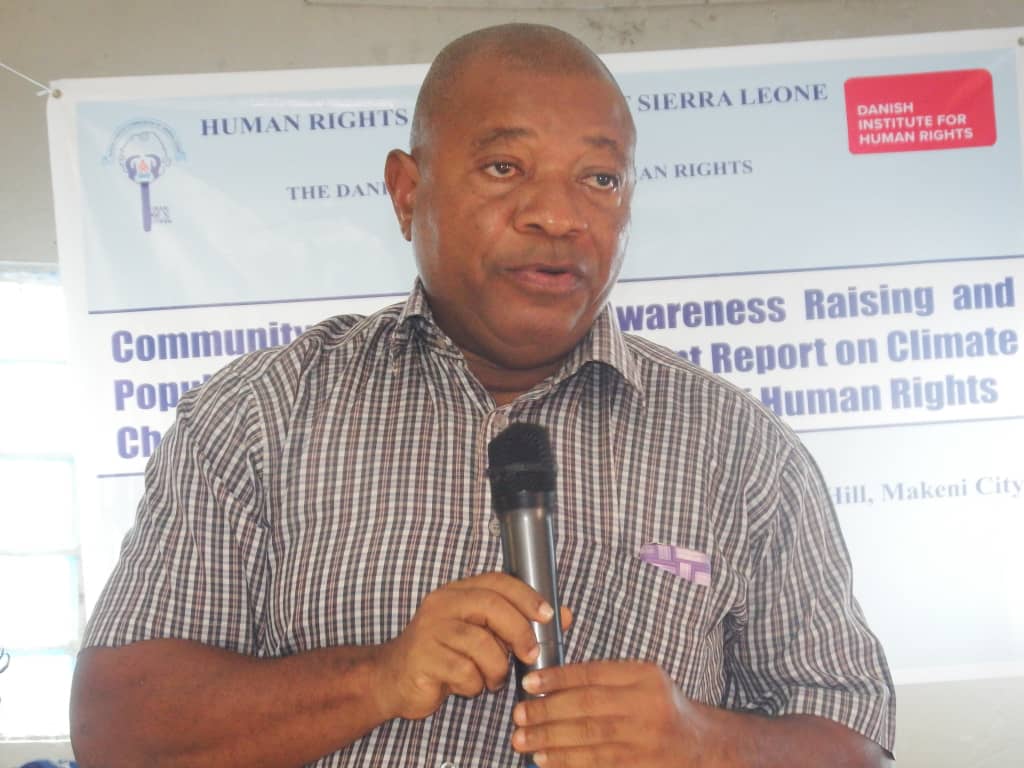By: Alusine Rehme Wilson

The Human Rights Commission of Sierra Leone (HRCSL) in collaboration with the Danish Institute for Human Rights, has launched a nationwide awareness campaign on climate change and its human rights implications, beginning in the northeastern city of Makeni.
The day-long engagement, held on November 20, 2025, at the Sierra Leone Teachers Union (SLTU) Hall, brought together key regional stakeholders, including representatives of the Sierra Leone Police, traditional leaders, civil society organizations, and the media with the desire to protect people, preserve the planet, empower communities, and safeguard the country’s future.
Established by an Act of Parliament in 2004, the HRCSL has increasingly recognized the growing threat that climate change poses to human rights, and to address these concerns, the Commission recently created a Directorate of Climate Change and Information Services, dedicated to monitoring environmental impacts and informing the public.
Speaking at the event, the Executive Secretary of the Human Rights Commission of Sierra, Mr. Joseph Kamara emphasized that shifts in weather patterns, drought, heavy rainfall, extreme heat, and pollution from mining all deeply affect human rights. These impacts, he noted, threaten rights to health, life, education, food security, and sustainable development.

He identified practices such as charcoal burning and widespread deforestation in Sierra Leone and beyond as major drivers of environmental degradation, stressing their direct human rights implications.
He disclosed that, the HRCSL recently compiled and launched a national report on climate change and human rights through its new Climate Change Directorate in October this year, to ensure the findings reach the public, the Commission is undertaking country-wide sensitization efforts to explain the report’s content and outline how climate threats intersect with daily life.
“We are committed to taking this information to communities, Mr. Kamara told AWE Media Sierra Leone, adding that funding constraints would not deter the Commission from delivering local-level outreach which is we're educating communities at regional level about how climate-related disruptions affect essential rights, including access to food, healthcare, and education.
The HRCSL's Executive Secretary concluded by urging citizens to refrain from environmentally harmful activities such as unchecked charcoal burning and deforestation, stressing their long-term consequences for both the environment and human rights.
Participants warmly welcomed the initiative including Chief Alhaji Mohamed Koroma of the Gbanka Potho community in Bombali District on behalf of other stakeholders that graced the event, praised the engagement and pledged to share the knowledge gained.
The Gbanka Potho community chief, also encouraged community members to adopt sustainable practices such as reforestation and to abandon destructive actions that worsen environmental decline.
Comments
Post a Comment